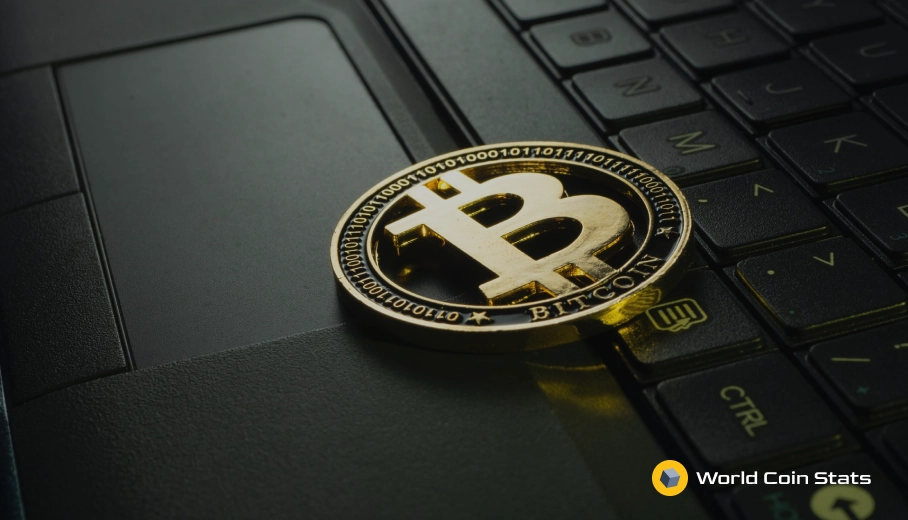Is it Possible that Ethereum Could Overtake Bitcoin and Soar Above $50,000?
Ethereum has earned itself a reputation as the little brother to Bitcoin. This is reasonable because Ethereum has always had a lower price and smaller market cap than Bitcoin.
However, there is something called “the flippening” often described in the Ethereum community. This is a scenario where Ethereum flips the price of Bitcoin.
A flippening is still a long way off, though. The price of Ethereum is approximately ~$4,500 compared to ~$63,000 for Bitcoin.
That said, it is still possible for Ethereum to overtake Bitcoin in price. This article will cover how that scenario could occur.
Two Reasons Ethereum Could Overtake Bitcoin
There are a handful of reasons that Ethereum could overtake Bitcoin. These reasons are all fairly valid reasons. The only thing standing in the way of this is that Ethereum has not received nearly as much retail investment as Bitcoin.
Anyway, here are the reasons.
Ethereum Has More Uses
Ethereum has far more uses than Bitcoin. The basics are that Ethereum has something called smart contracts, which are basically computer programs on the blockchain that run when predetermined conditions are met.
Smart contracts are the building block of Ethereum. Anyone can deploy a smart contract to the blockchain. All the decentralized applications on Ethereum are simply smart contracts with a GUI on the internet.
Notable decentralized apps on Ethereum include Uniswap, SushiSwap, Curve, Yearn.finance, and Aave. All the apps listed above fall into a category called decentralized finance, which is basically an entire financial system that runs on the blockchain.
So, what does all of this have to do with the price of Ethereum?
It’s simple. All of the decentralized apps listed above run on Ethereum. This means that users must pay gas fees in order to interact with the Ethereum smart contracts. That creates demand for Ether because that is used to pay the gas fees.
Ether is also a big component of DeFi because it’s a sort of base currency on a lot of DeFi protocols. Again, the use of Ether on DeFi will create demand for the token. It also causes a lot of Ether to get locked into liquidity pools or otherwise taken out of circulation.
This is quite the difference when compared to Bitcoin. Bitcoin has no smart contract functionality. The primary reason people buy it is because they believe the price will appreciate in the future.
Bitcoin can also be used to pay for goods and services, but that’s not the primary reason people purchase it. It’s also somewhat cumbersome to use Bitcoin to pay small amounts unless you use a layer 2 solution called Lightning Network.
Ethereum 2.0 Reduces Fees
A huge problem with Ethereum is that the fees to use the blockchain are high. The fees vary depending on the complexity of the smart contract and the gas prices at the time.
For reference, the average tends to be around $100 for a Uniswap transaction. The price often goes higher and rarely goes lower than that.
It’s actually surprising that Ethereum has been so successful with such high gas fees. Granted, the gas fees are so high because Ethereum is the most popular smart contract compatible blockchain.
We will put it this way, Ethereum has a market cap over $500 billion and 1 ETH costs approximately $4,500.
That valuation is with insanely high gas fees that make the blockchain borderline unusable for small transactions.
Can you imagine the surge in popularity when the gas fees drop?
Fortunately, you will not have to imagine this for very long. Ethereum 2.0 is planned to release at the end of 2021 or beginning of 2022. For those that do not know, Ethereum 2.0 is an update to Ethereum that will switch the blockchain from proof of work to proof of stake.
This means that the days of miners solving math problems to validate transactions are over. Instead, people can stake their coins as a form of collateral to validate transactions.
This is important because proof of stake blockchains have far lower fees than proof of work blockchains.
The fees will drop further when something called sharding is released. Sharding is a fairly basic concept related to database architecture. Basically, sharding refers to splitting a database into multiple parts and storing those parts on different servers. Ethereum would utilize this in combination with proof of stake by dividing transactions into different nodes.
Bitcoin is Reaching Peak Growth
Bitcoin currently has a market cap over $1 trillion USD. It’s reasonable to assume that this growth will slow down at some point as most people that want to invest in the cryptocurrency have already invested in it.
This is not really the case with Ethereum because of the gas fees.
Are we saying that Bitcoin’s price will decrease?
No, the price of Bitcoin will most likely continue going up on a long term timeline. What we are saying is that the days of Bitcoin experiencing large gains are slowly disappearing.
Ethereum still has a lot of room left to grow. This means that Ethereum can actually catch up to Bitcoin. It will become more noticeable once the gas fees lower on Ethereum and a larger segment of the population has access to the cool stuff on the blockchain.
Bitcoin Isn’t Going Anywhere
The thing with Bitcoin is that the blockchain is not going anywhere. We know that it does not really have that many uses outside of being a store of value. However, it has solidified itself as a store of value amongst retail investors, high net worth individuals, and institutions (ie. Tesla, MicroStrategy, etc.).
All Bitcoin really needs to do is continue to solidify itself as a store of value for groups with large amounts of money and its price will continue to rise. This is already occurring to some extent with El Salvador declaring it legal tender. More countries will jump on board, which will seal it for Bitcoin as a store of value.
This is partially helped by the fact that the United States Federal Reserve has decided to print an obscenely large amount of fiat currency over the past two years. People (and countries) have not much interest in holding US Dollars because inflation has risen due to all the money printing.
In fact, the best place to store value these days is not in US bonds, stocks, or dollars – it is in Bitcoin.
Money will continue to flow into Bitcoin for the foreseeable future. The likely endgame with cryptocurrency is a system where Bitcoin is used as a store of value. Ether and tokens on Ethereum will be used for day to day transactions and other financial purposes.
Closing Thoughts
That sums it up for whether Ethereum can overtake Ethereum. We do find it likely that an overtake will occur at some point, but it will be a few years away. It will also require Ethereum to make all the right moves in regards to upgrading the blockchain, avoiding regulation, and avoiding other problems that could damage the reputation of the project.




